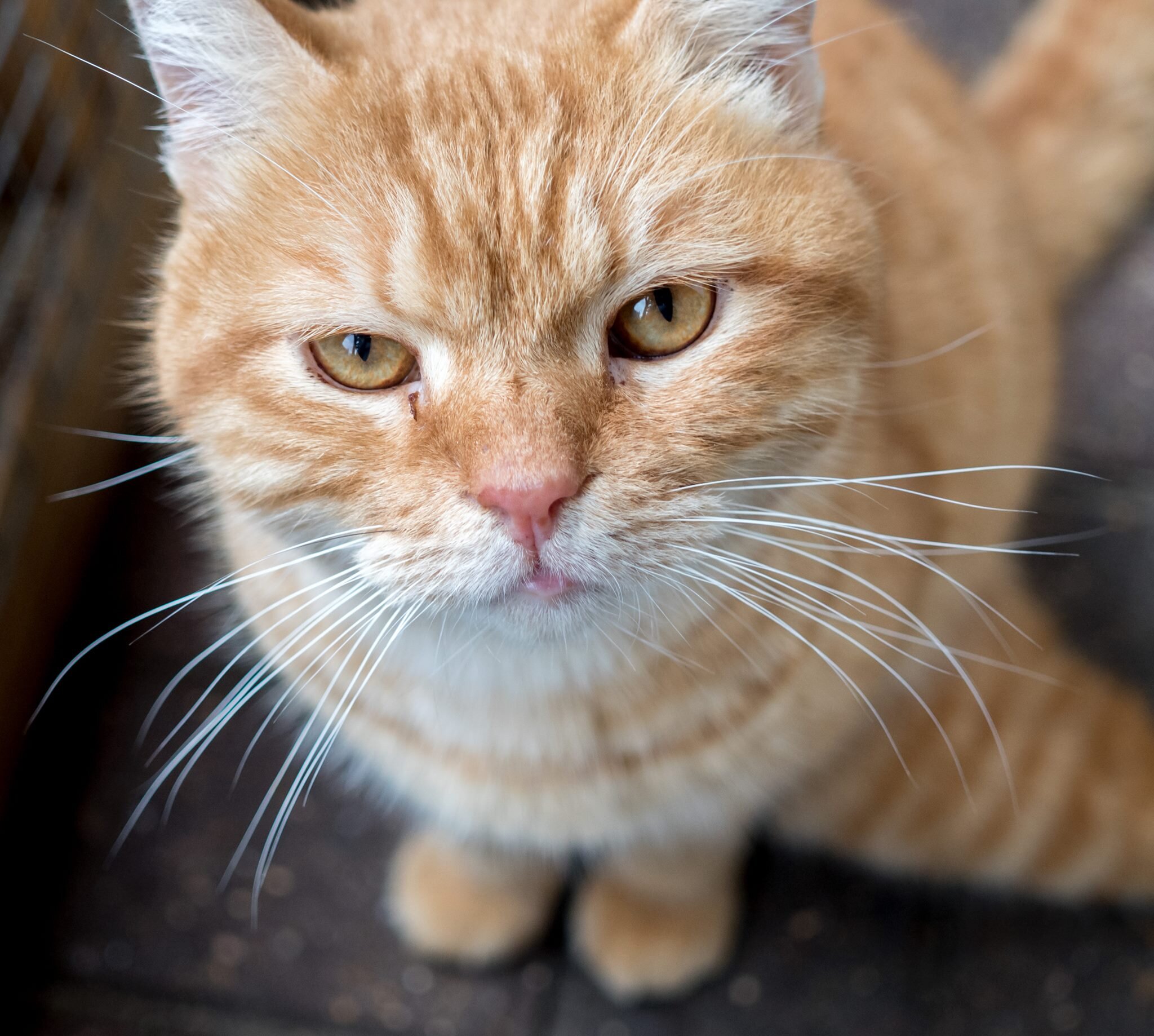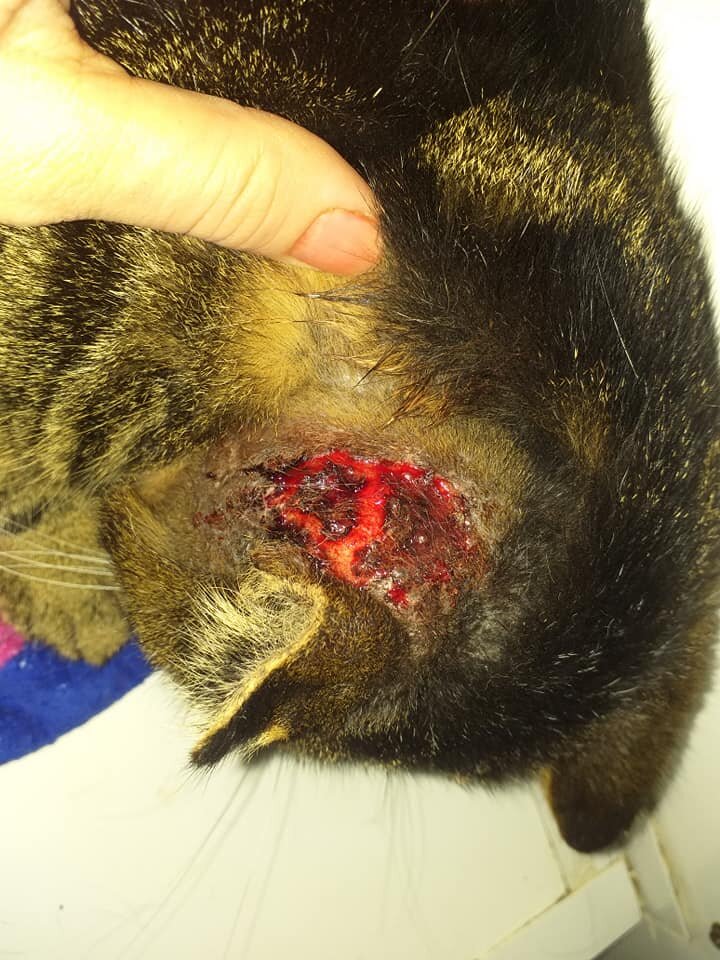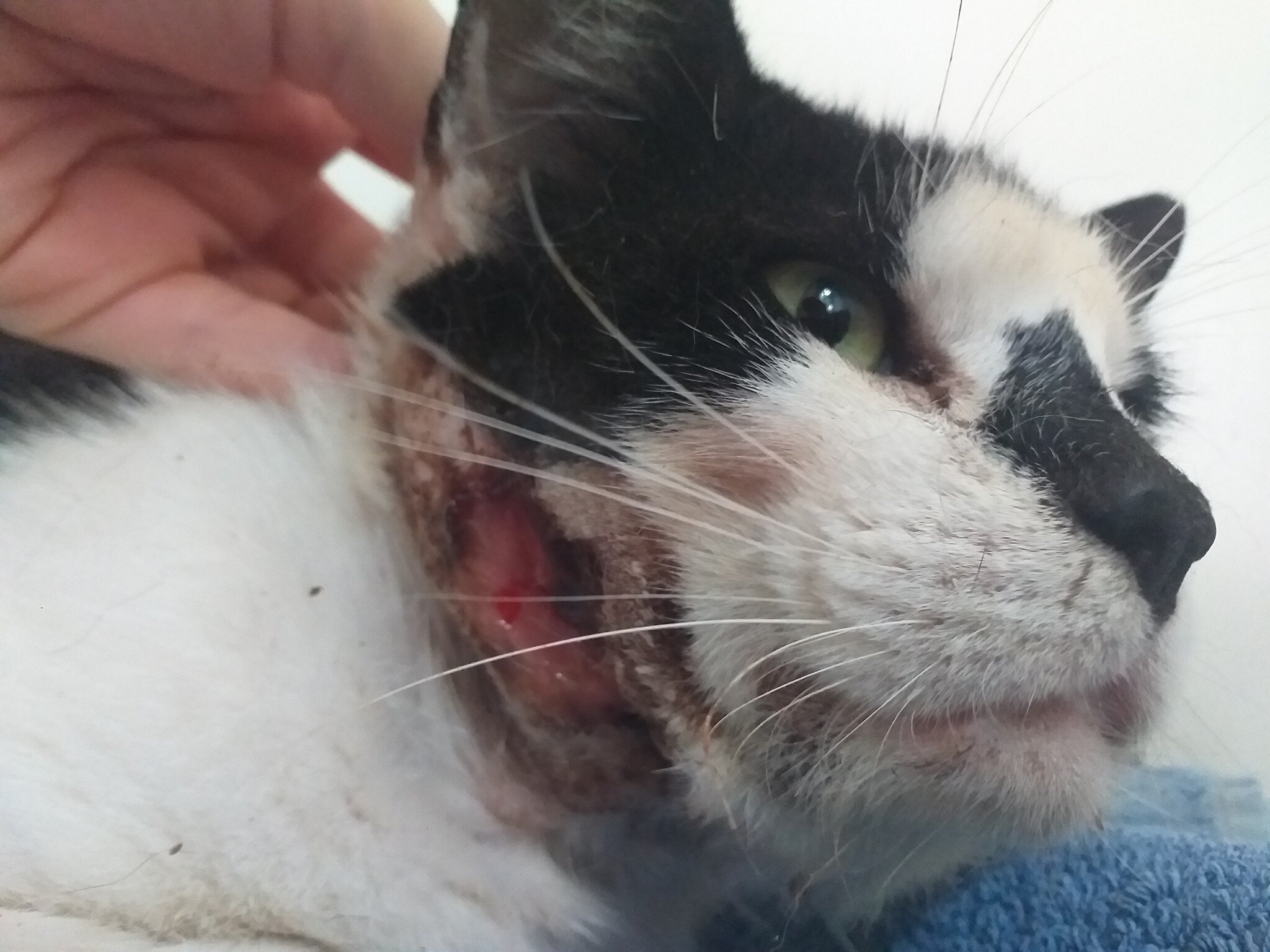5 Reasons Why You Should Neuter your Cat
(Warning - this article contains graphic images).
At Catcuddles, we see an immense amount of suffering on a daily basis that could have been prevented with a very safe, simple, and affordable procedure; neutering.
Neutering your cat BEFORE allowing them outside for the first time, and before they reach sexual maturity and experience their first ‘season’, is perhaps the single most important decision you can make not only for your cat’s welfare, but for the welfare of cats everywhere.
Here are five reasons why.
1) Fighting, abscesses, and FIV.
Unneutered male cats are compelled by their hormones to fight. These fights might be over territory, winning mating rights to a female, or establishing dominance in a pecking order. Whatever the reason, fighting can cause a great deal of suffering and damage to cats. Many unneutered male cats that enter the care of Catcuddles, particularly strays, are covered in scars and wounds, both fresh and old, from frequent fights, or have small chips missing from their ears. Many have become a nuisance in the neighbourhood in which they live, attacking other local cats, leading to large vet bills for cat owners in the community.
It’s also very common for bite wounds incurred during fights to become infected and form large, painful abscesses. When these abscesses eventually burst, they leave behind gaping wounds that may take weeks to heal, even with antibiotics and daily cleaning. If left untreated, such wounds may become necrotic, meaning the flesh around them will begin to die, and will need to be cut away by a veterinary surgeon. In the summer, burst abscesses may also be a magnet for flystrike - and in the most extreme cases, Catcuddles has seen fly eggs or live maggot infestations on cats that have been the victim of infected bites.
Even bite wounds that do not become infected have the potential to transmit viruses such as FIV, which is spread through deep bites in particular. This is why FIV is so prolific among unneutered male cats, as they are most prone to fighting. At Catcuddles, we have rarely encountered a neutered cat with FIV; 99% of the cats carrying this virus are unneutered males.
2) Roaming and getting lost.
Unneutered cats are more likely to get lost or injured or killed in road traffic accidents. The reason for this is that their hormones compel them to roam long distances to stake out territory or to pursue other unneutered cats to mate with. Unneutered males are particularly at risk; often our volunteers will be called out to scan deceased cats for microchips, sadly, these are nearly always unneutered males who have been hit by cars whilst crossing busy roads, no doubt due to their biological compulsion to roam. Males may also chase each other into roads during fights.
Unneutered females that get lost and become stray as a result of this tendency to wander, however, also face a grim existence - an unfortunate pattern of constant impregnation by persistent males, followed by giving birth on the streets over and over. Kittens born homeless are at risk from predators like foxes, and are often without shelter, so are at the mercy of the weather and are also prone to malnutrition and severe parasite infestations. If they do survive to maturity, they will become feral as a result of no contact with humans as kittens, a pivotal period in their socialisation. This means that even if kittens are rescued as adults or adolescents, once feral they will never adapt to life in a home, and so will have poor adoption prospects. If left on the streets, they too, will continue this cycle of suffering perpetuated by unneutered cats - breeding, creating homeless kittens, fighting, spreading FIV, and living short, brutal lives.
3) Over-population.
Many countries, including the UK, are currently facing a crisis of feline over-population. There are simply too many cats being born and not enough suitable, long-term homes for all. There are an estimated 10 million homeless cats living as strays on UK streets, and many thousands more in rescue centres that are in need of new homes. Some of these cats will be euthanised by rescue centres that, unlike Catcuddles, do not currently have a no-kill policy, if they are unable to find adopters. Elderly, shy and special needs cats are particularly at risk.
The problem is even greater in other countries, where rescue centres are so overcrowded that thousands of cats are being euthanised daily, and programmes are employed to reduce stray cat numbers through poisoning and shooting.
The reason we are in this situation, not just in the UK but all over the world, is due to a widespread lack of neutering, leading to countless accidental litters of kittens, which take up homes that could go to cats waiting in rescue centres. If you let your cat outdoors when they are not yet neutered, then it is not a question of if they will breed - it’s a question of when.
Lack of neutering has also led to more cats becoming lost and stray, due to their propensity to roam if unneutered. These lost cats then breed with other strays, or even with unneutered, owned cats - creating a huge, ever-growing stray and feral population. Some studies suggest there are as many stray cats as there are cats in homes.
Backyard breeding and the unregulated sale of kittens is also a huge problem, as this involves deliberately creating more cats when there simply are too many already. Since breeders often do not home check potential buyers, they may also sell kittens to people not prepared for a possible twenty-year commitment - who then surrender their cats to rescue centres months, or years, later, thus adding to the burden of already overworked rescue orgnisations. Any kittens sold may also remain unneutered, as, unlike rescue centres, breeders are less likely to insist that buyers neuter their purchased kittens when they are of age.
Please be part of the solution for feline over-population, and not the problem, by neutering your cat, and by adopting a cat from a rescue centre rather than buying from a breeder. Your decision doesn’t just affect the welfare of your own cat, it affects the welfare of cats everywhere.
4) Spraying.
Unneutered cats are far more likely to exhibit ‘spraying’ behaviour; which means marking their territory, including around the house, by excreting strong-smelling urine. Although both female and male cats may spray, the behaviour is most common in unneutered males, and the presence of large amounts of bodily pheromones gives their urine a characteristically pungent smell, one that is difficult to remove from furniture and the home.
Neutering not only reduces the odour of a cat’s urine, it also reduces the motivation for spraying behaviour drastically; only 10% of male cats continue to spray after being castrated.
5) Health benefits.
The image to the left shows the violently engorged uterus of a cat suffering from pyometra, as she undergoes emergency surgery at our North London Cat Clinic. Pyometra is an infection of the uterus that is most common in cats who have recently been ‘in heat’ or ‘in season’. If untreated, it can be fatal, and unfortunately, in the case pictured, our team was ultimately unable to save the cat despite our best efforts.
Pyometra only affects unneutered female cats. Eradicating the risk of this awful, dangerous infection is just one of the potential health benefits of neutering, however. Female cats neutered before their first season will also have a significantly reduced risk of mammary cancer, and male cats will have a reduced risk of diseases related to the prostate and testicular cancer.
Add to this the reduced likelihood of FIV infection, injuries incurred in fights with other cats, abscesses, and complications arising from giving birth, and it is abundantly clear that neutering is hugely important in safeguarding your cat’s health. In fact, it is essential for any responsible cat owner - for this reason and those outlined above.






